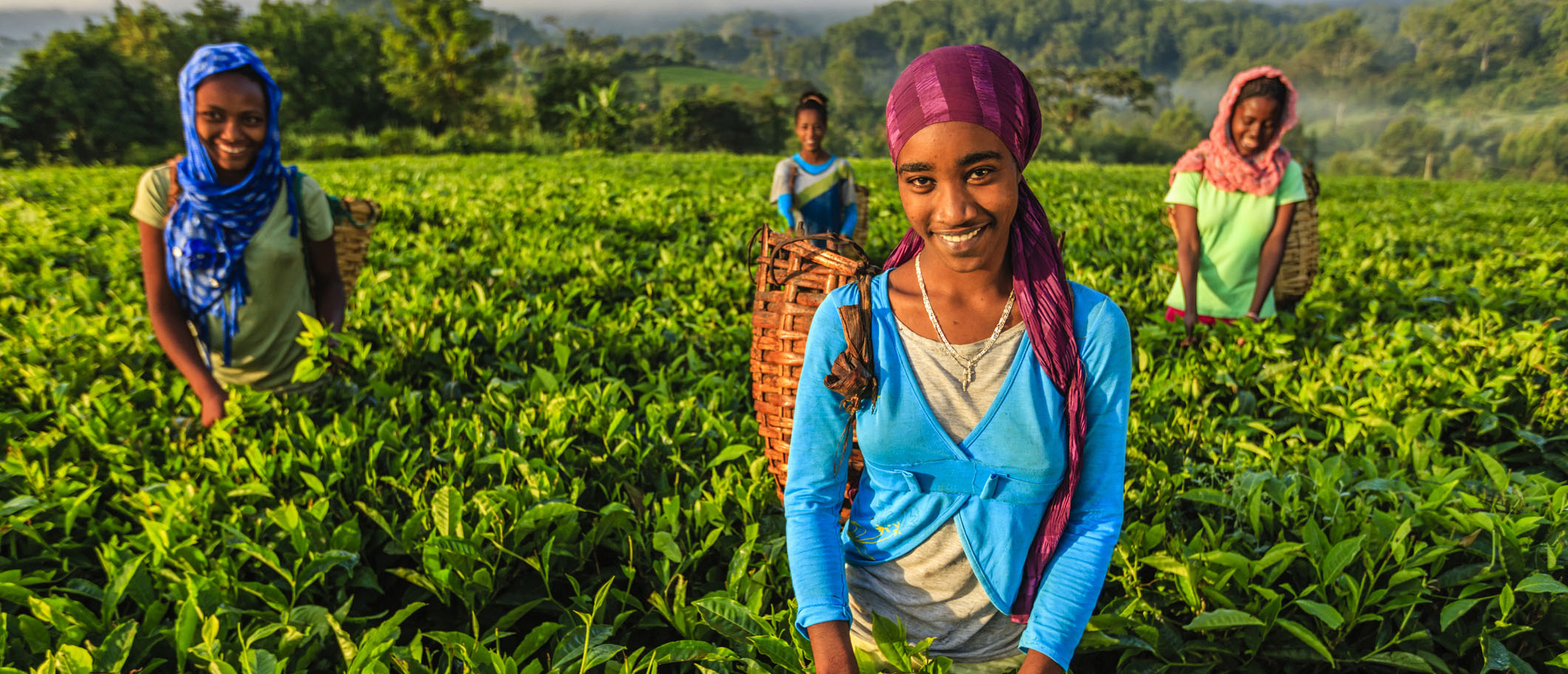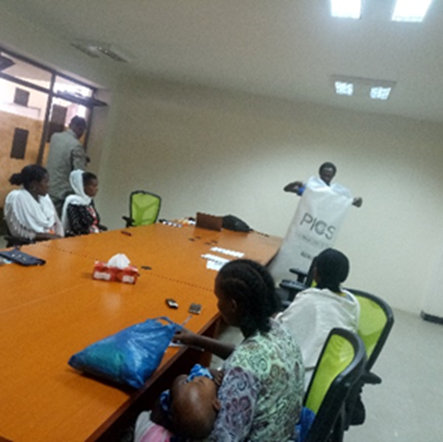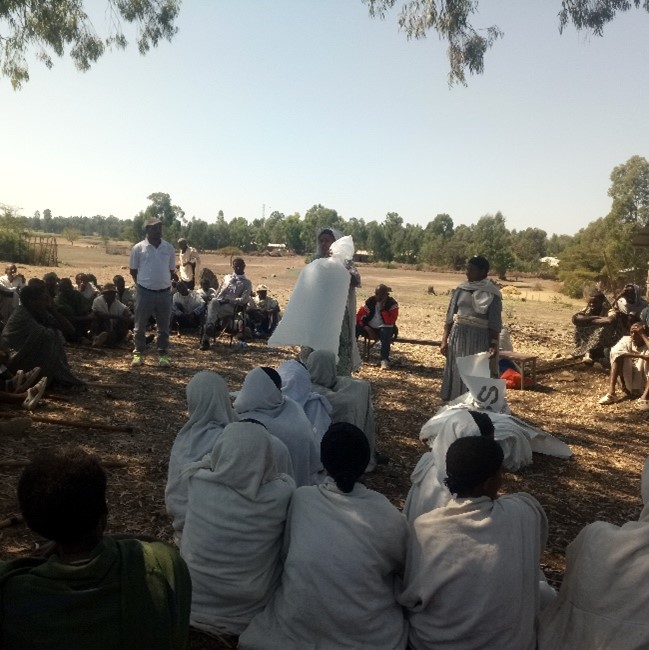
Empowering Women in Post-Harvest Management
In Ethiopia’s Amhara region, women play an important role in the agricultural sector and in post-harvest management. Women are directly engaged during crop yield collection, grading and selecting quality crops, storage preparation, pest protection, and product restocking. Women also bear sole responsibility for processing crops for family consumption, which is both time and labor intensive.
In the past, both men and women in the agricultural sector have struggled with pest management during post-harvest handling and have had to rely on chemical treatments that posed health and safety concerns, while increasing the time dedicated to post harvest management. Recognizing this challenge, the United States Agency for International Development (USAID)-funded Feed the Future Ethiopia Value Chain Activity (VCA) began promoting hermetic storage technology (HST) options, such as Perdue Improved Crop Storage (PICS) bags, through private sector suppliers. PICS bags seal and store dried agricultural commodities; the units are airtight to control moisture, keep products free of insects, and importantly are chemical free. PICS bags help small holder farmers by minimizing post-harvest loss and reducing chemical contamination and related health hazards.
Banyan Global is a subcontractor on the VCA project and is responsible for gender and youth integration to help ensure equitable outcomes. Banyan Global found that women were only being engaged as buyers of PICS bag technologies and were excluded from business opportunities to serve as suppliers despite their important role in post-harvest management. With this in mind, Banyan Global worked with VCA to proactively engage women through a number of organizations, such as cooperatives and other business and social groups. Banyan Global teams used these organizations to identify and mobilize women that could help raise awareness and promote PICS bags dealership opportunities among their members.

Women participate in orientation on PICS bag promotion.
Working with Shayashone, one of VCA’s supplier partners, the project facilitated a half-day orientation for six women, representing three different types of organizations, on the benefits of PICS bag storage and demonstrated effective utilization techniques. Shayashone also registered all three organizations as PICS bag dealers, officially allowing them to promote and distribute the products in the Gondar Zuria and South Achefer areas. The orientation also helped place the six women in leadership positions to establish dealership agreements with the supplier and act as retailers to members of their respective organizations. In addition to this technical support, VCA provided opportunities for the women to promote the technology at field days and linked them to agricultural post-harvest experts to reach even wider markets and to connect with available storage spaces. PICS bag popularity has also proliferated through the use of a number of advocacy platforms.
Representatives of the women’s groups have already seen success in their PICS bag businesses. According to Adina Ebabu from Gondar Zuria, 389 PICS bags have been sold and distributed to 190 small holder farmers of which 40 percent were women.
Similarly, Muket Alefe, who sells near South Achefer, reported selling 290 PICS bags to date. 
Women promote PICS bags at chickpea farmer field day.
In addition to sales, women PICS dealers have seen a number of other benefits. They have increased their self-confidence; feel empowered; and have been recognized as leaders within their communities. They have also been able to expand their business outside of VCA’s target areas, having a multiplier effect. Finally, PICS dealers are growing their social networks, leading to an informal network of women agro-business dealers. Overall, the introduction of hermetic storage technology has had a positive and empowering impact in the crop value chain and has strengthened communication skills, increased mobility, and allowed women to start to make more independent decisions over their income. As Muket Alefe, CIG leader and PICS bag dealer shared:
“many of the farmers checked the technology at home to confirm what I promoted. Since they saw it working themselves, this build[s] trust and they immediately wanted to buy more. This means my home has been a school for other farmers. At the beginning I was hesitant because we (women) had been influenced by words that weren’t true, but now I know I can make a difference.”
